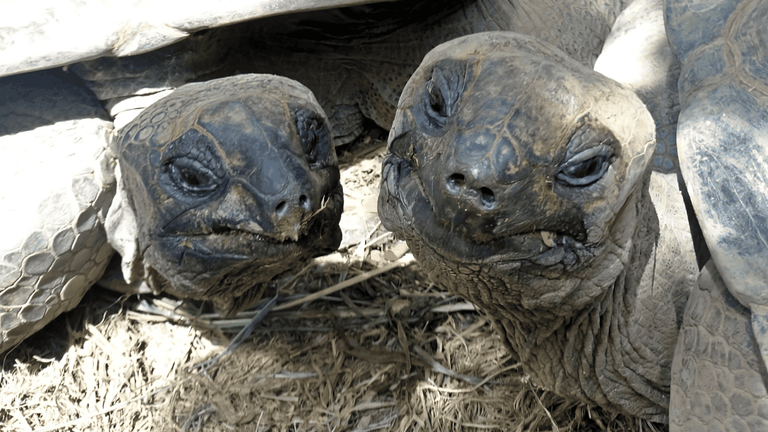https://www.lifegate.it/habitat-testuggini-giganti-in-pericolo
- |
- The habitat of Aldabra's giant tortoises is in danger due to the construction of a luxury resort
- Luxury yachts, private jets and tourists could compromise this paradise
- UNESCO is also concerned about this project and is asking for clarification
The habitat of the largest population of tortoises giants is threatened from a tourism development project financed by Qatar, which involves the construction of a luxury resort on the island of Assomption, part of the Aldabra archipelago, in the Seychelles.The biologists they raised the alarm, as the plan could attract numerous luxury yachts, private jets and tourists to this remote Indian Ocean island.
The paradise of giant tortoises is in danger
The Seychelles authorities are currently discussing the proposal, while the expansion works of the Assomption airport, necessary to allow the landing of larger aircraft, have already been completed.Although the developers promise to adopt sustainability practices excellent, wildlife experts and biologists fear the project is advancing too quickly, without an adequate risk assessment for local biodiversity.Among the main concerns is the threat to the ecosystem of the Aldabra atoll, a site protected by UNESCO located just 27 km from Assomption.
Aldabra is renowned for hosting approx 150 thousands giant tortoises (Aldabrachelys gigantea), a species known for its longevity and impressive size, with male specimens that can weigh up to 250 kilos and with a carapace of over 122 cm. The oldest tortoise, known in captivity, was named Adwaita, and is said to have died at the age of 255 in 2006 in Calcutta Zoo, India.Other famous individuals such as Darwin, who died in Blackpool Zoo at the age of 105, and Esmeralda, who is said to be 180 years old.

UNESCO is concerned about the conservation of Aldabra
This fragile ecosystem is considered one of the world's conservation jewels since 1982 it has been declared a world heritage site by UNESCO. Giant tortoises they were wiped out from most Indian Ocean islands in the nineteenth century due to predation by sailors.Fortunately, the population of Aldabra, thanks to its isolation, managed to survive together with 400 other endemic species.In recent decades, access to the area has been strictly limited to researchers, but the development of this luxury resort could change that, bringing visitors ever closer to this environment.
UNESCO also expressed its concern by sending a letter to the President of the Seychelles Wavel Ramkalawan requesting explanations and clarifications for the potential impacts of the project, underlining the importance of preserving the exceptional value of Aldabra.In addition to UNESCO, too several local environmental organizations raised criticism.Fears are linked to the introduction of invasive species, the destruction of crucial tortoise habitats and the possible devastation of sand dunes during construction.
Environmental safety will be maintained but not everyone agrees
Despite the criticisms, theIsland Development Corporation (IDC), the body supporting the project, stated that the environmental safety measures envisaged will be sufficient to protect the ecosystem.The IDC insists that giant tortoises have adapted well to other previous developments and that new structures, such as the restoration of native vegetation and the provision of water sources for the hotel, they may even benefit the local fauna.Opponents, however, remain skeptical.THE'Indian Ocean Tortoise Alliance warned that the project could irreparably damage one of the Seychelles' most precious natural treasures.
Even the Seychelles islands foundation called for the immediate suspension of work until an adequate biosafety plan was put in place, for avoid the introduction of invasive alien species which could devastatingly alter the ecological balance.In response, the developers of the Qatari group say that their goal is to preserve the Assomption ecosystem and that each phase of the project will respect sustainable best practices.They say the development will offer an opportunity to regenerate the island, which has in the past been exploited for guano extraction, causing significant environmental damage.
The speed with which the project is progressing and the lack of an independent evaluation remain critical points. Many conservationists and biologists are calling for more caution, remembering that the protection of unique places like Aldabra cannot be sacrificed in the name of economic development.The future of Aldabra and its precious habitat will depend on how these development plans are managed.
